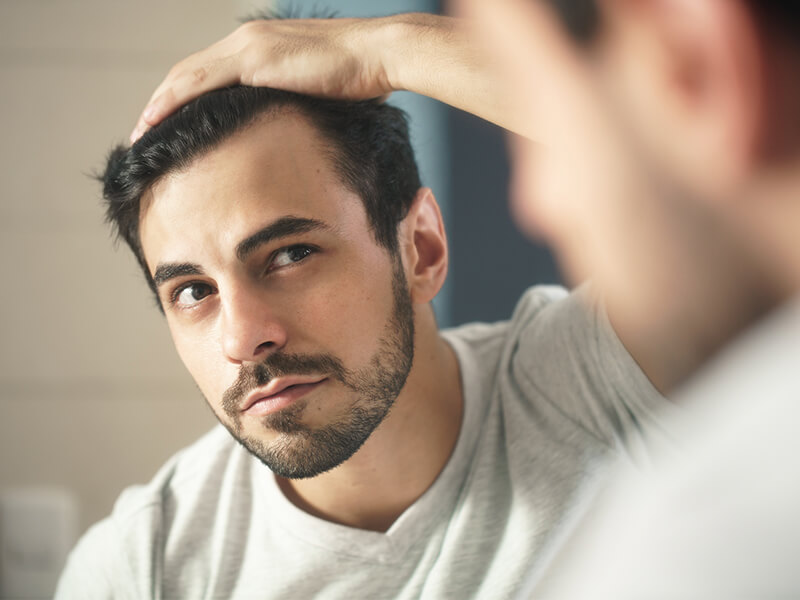The bald facts about male hair loss (it’s not all bad news)
From as far back as when the so-called Greek God of Love Adonis was depicted with flowing curly locks, there’s been pressure on men to sport a good head of hair.
Men have varying reactions to hair loss.
For some it causes minor worry and stress, but for others it can be a significant source of anxiety.
A University of Melbourne study found 75 per cent of men with moderate to severe hair loss believed it made them look older, and less physically and sexually attractive, than their non-balding peers.
If you’re one of the many men experiencing early baldness, take heart – there is some good news.
You’re probably experiencing male pattern baldness
Also known as androgenetic alopecia, male pattern baldness is by far the most common type of hair loss.
The gradual thinning of the hair usually starts at the temples or crown of the head.
Some men might also notice a receding hairline, which regresses backwards until it meets with the thinning hair on the crown.
If you’ve got it, you’re far from alone
An inherited condition, it can start as early as teens for some unlucky males.
By the age of 50, it’s estimated half of men are experiencing significant hair thinning.
But it varies between individuals and so there’s no way to predict what path each person’s experience with hair loss will take.
What causes male pattern baldness?
A fiddly little hormone known as dihydrotestosterone (or DHT), a distant cousin to testosterone, is the most significant factor in male pattern baldness.
Exposure to DHT makes hair follicles in certain areas of the scalp spend more time resting and less time growing.
Hair grows progressively shorter and finer until a time there’s no new hairs at all.
The good news is this type of baldness usually comes with no side effects.
The bad news? It’s one of the toughest hair loss conditions to spot as the process is gradual.
How to tackle male hair loss
While there’s no cure yet for male pattern baldness, there are treatments that help slow down and may even reverse the progression of thinning hair.
Experts advise to get in quickly with treatment while the hair follicle is still intact to improve the health of existing thinner hairs and even regrow hair.
Over-the-counter products can help reverse the progression of hereditary hair loss and prolong the hair growth phase over time. Look for products that are easy to use and have clinically proven results.
If you’re unsure about what’s causing your hair loss or if hair loss is causing you or someone you know distress, it’s best to consult a health care professional.
This post is brought to you by REGAINE® foam.
Always read the label and use only as directed. If symptoms persist, speak to your healthcare professional. REGAINE® should only be used to treat hereditary hair loss.






